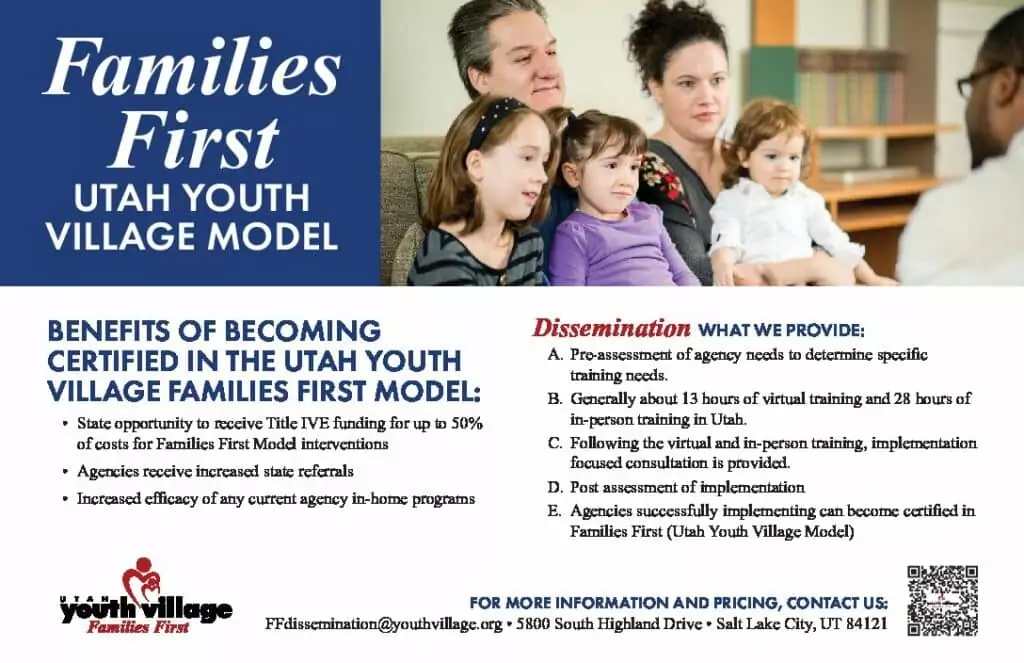A Unique In-Home Intervention
Families First is Utah’s premier evidence-based, in-home, skill-based intervention designed to teach parents and youth skills to change the unwanted behaviors occurring in the home, and to improve family functioning. Families First seeks to promote child safety, child permanency, child well-being and adult well-being.
In addition to contracted referrals from Utah Juvenile Courts, Division of Child and Family Services (DCFS), Juvenile Justice Services (JJS)- and insurance companies, many of the referrals we receive are from healthy families who are simply looking for more effective ways to communicate and impact their children and their behaviors.















